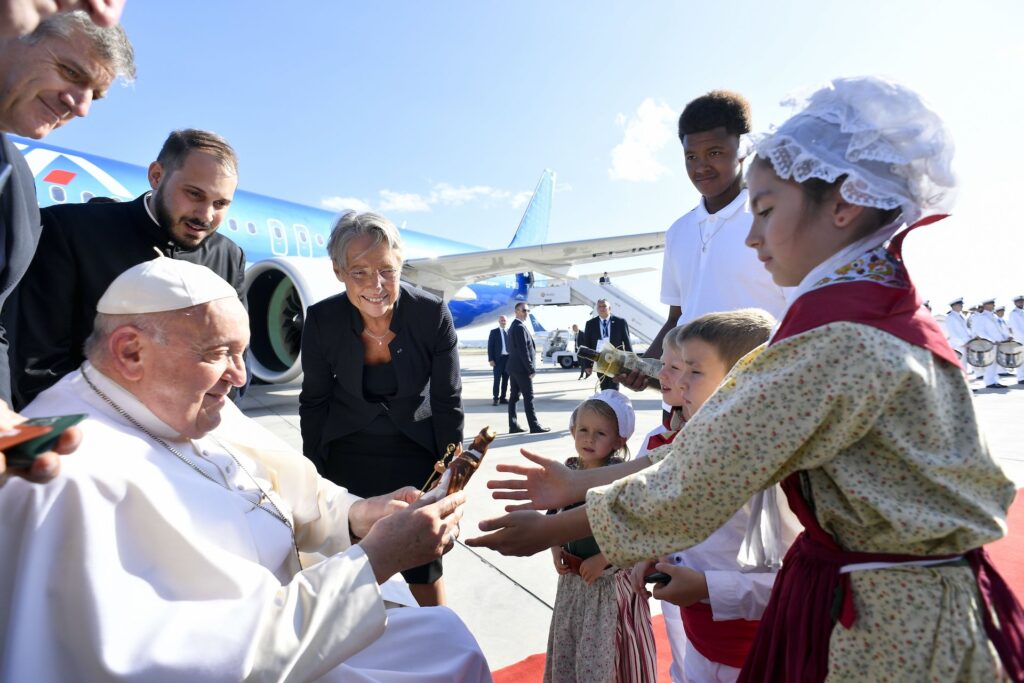MARSEILLE, France (CNS) – Pope Francis arrived in the ancient port city of Marseille Sept. 22 for a two-day visit that was to focus on the plight of migrants and other opportunities and threats facing the Mediterranean Sea and the nations along its shores.
Riding in a wheelchair, he was greeted by French Prime Minister Élisabeth Borne and by four children and a young man who gave him flowers and other gifts.
He stood on the red carpet for the playing of the Vatican and French national anthems before he and Borne went into the airport for a brief meeting.
Speaking to reporters flying with him, the pope said the trip was meant to bring the world’s attention to “a problem that worries me, which is the problem of the Mediterranean.”
“The exploitation of migrants is criminal” as is their detention, he had told reporters in August, and “I am going to Marseille for this.”
During the flight to Marseille, the pope greeted each reporter individually and responded to comments and questions about the latest influx of migrants, who often travel in extremely unsafe and dire conditions, onto the Italian island of Lampedusa: “It is cruelty and a terrible lack of humanity,” he said to one reporter.
“I hope I have the courage to say everything I have to say,” he replied to another reporter’s prompts about the situation in Lampedusa. A photojournalist gave him a photograph she took last week of a child arriving on the island of Lampedusa.
Pope Francis also spoke about how migrants are detained in north Africa “in lagers, they then throw them into the sea,” he said, becoming visibly emotional.
The trip’s main event was to be his speech Sept. 23 to the “Mediterranean Meetings,” which has brought about 70 bishops and 60 young people of all faiths from 30 countries surrounding the Mediterranean to dialogue together. Civil and other leaders also are attending the weeklong meetings, which will discuss social-economic issues, ecology, immigration and civil or political conflicts affecting the region at large.
The meetings’ Catholic organizers, which include the Archdiocese of Marseille, hoped to bring all sides together to focus on concrete ways to promote the common good, to see and respect the dignity of all human beings and to recognize everyone is part of one human family.
News of migrants lost or dying at sea and of thousands more arriving on shore peaks in the summer and fall months, and the pope will expect something concrete to emerge with his trip. As he said at his Sept. 17 Angelus prayer, migration “represents a challenge that is not easy.”
But it “must be faced together, since it is essential for the future of all, which will be prosperous only if it is built on fraternity, putting human dignity and real people, especially those most in need, in first place.”
Before the pope left for what is his 44th apostolic journey abroad, he met at his residence with about 20 women, who are guests at a shelter in the Vatican run by the Missionaries of Charity.

